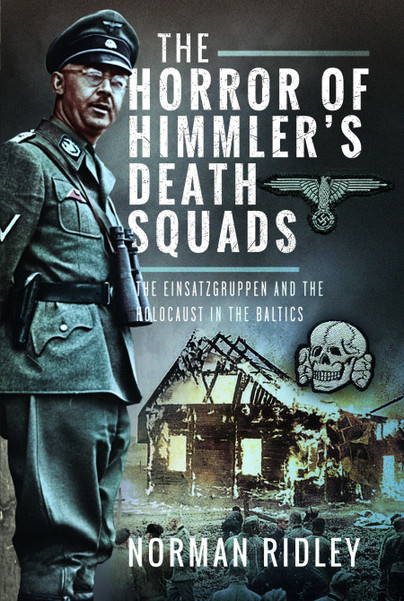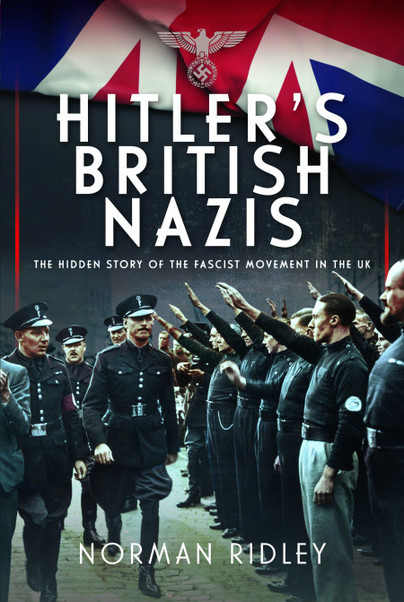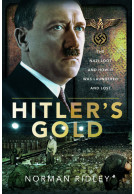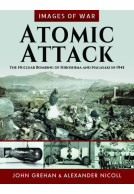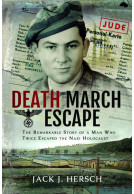The Horror of Himmler’s Death Squads (Hardback)
The Einsatzgruppen and the Holocaust in the Baltics

Pages: 248
Illustrations: 16 mono illustrations
ISBN: 9781036106706
Published: 4th July 2024
(click here for international delivery rates)
Need a currency converter? Check XE.com for live rates
| Other formats available - Buy the Hardback and get the eBook for £1.99! | Price |
|---|---|
| The Horror of Himmler’s Death… ePub (9.9 MB) Add to Basket | £6.99 |
During the Second World War, Lithuania, Latvia and Estonia were occupied on three separate occasions – twice by the Soviet Union and once by Nazi Germany. The signing of the Ribbentrop-Molotov Pact of 1939 allowed the Soviets to dominate the Baltic states without fear of German reprisals, causing many in the German-Baltic populations to flee to Poland.
Soviet rule of the Baltics was brutal with the purging of political elites and deportation of many tens of thousands in a bid to turn them into vassal states. Consequently, when Hitler launched Operation Barbarossa in June 1941, many Balts saw it as a liberation from Soviet cruelties. The reality was, however, that it turned out to be the beginning of something much worse.
During their occupation of Poland prior to Barbarossa the Nazis had decimated the Polish political elites, and the Jews there had been herded into ghettos in preparation for deportation to the east where they would serve as slave labour in the Nazi economy after the conquest of the Soviet Union. Similar policies were to be adopted in the Baltics when Heinrich Himmler's murder squads, the Einsatzgruppen, were allowed to move into the newly-occupied territories.
Operating behind the advancing German forces Einsatzgruppen A, B, C, and D – four special mobile killing units, each made up of about a thousand men from the security police and the German intelligence service – proved to be more than willing to carry out Himmler's orders. He had called for the removal of every vestige of opposition to Nazi rule, which primarily meant complete elimination of the ‘inferior’ races who were unfit for work and the ghettoization of others in preparation for their economic exploitation.
On foreign soil, away from scrutiny and free of all constraint, the Einsatzgruppen discovered that through the mass shootings of communists, Jews and gypsies it was possible to accelerate the pace of the Holocaust, slaughtering men, women and children in their tens of thousands. The Einsatzgruppen were assisted by local ‘volunteers’ who helped to identify victims as well as kill them; in places whole Jewish communities were swiftly eliminated. Many of the killers and victims had known one another as neighbours and colleagues.
This massive slaughter of civilians convinced Heydrich and Himmler that complete extermination of Jews was within their grasp and before very long, in the death camps, new industrial methods of killing would be devised.
There are no reviews for this book. Register or Login now and you can be the first to post a review!
About Norman Ridley
NORMAN RIDLEY is an Open University Honours Graduate who writes about the less well covered aspects of 20th Century history. He lives in the Channel Islands.
Hitler's British Nazis The Hidden Story of the Fascist Movement in the UK (Hardback)
Following the end of the First World War, many countries experienced economic decline. Unemployment, high inflation, low wages and poor working conditions led to widespread unrest. This manifested itself in the rise of powerful militaristic leaders, first in Italy where fascism was born, and then in Germany and elsewhere. The policies of the likes of Mussolini and Hitler were hugely popular, and fascism was seen by many as a viable political alternative to democracy. To some degree, these ideals also gained traction in the UK where some individuals in and among the elite of British society believed…
By Norman RidleyClick here to buy both titles for £47.00







